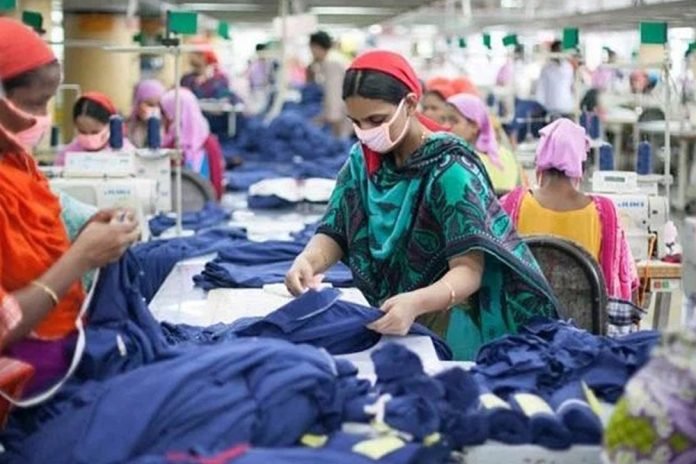Bangladesh’s ready-made garment sector is under the scrutiny of the United States International Trade Commission over labor right in the sector. Representatives from Bangladesh’s apparel sector faced tough questions on labour rights, worker productivity, and wages during recent virtual hearing held by (USITC).
Five countries that export garments to the US market were questioned by USITC Chairman David Johansson and his three colleagues during the four-hour hearing. The USITC is investigating labour practices in five major garment-exporting countries to the US – Bangladesh, India, Cambodia, Indonesia, and Pakistan – at the request of the US Trade Representative.
The main objective of this commission is to find out whether any of these five countries are occupying the market through unhealthy competition. The inquiry aims to determine if any of these nations gain an unfair advantage through unethical labour practices. The commission is also investigating how these countries have occupied such a large portion of the US garment industry.
Perhaps feeling the heat, president-elect of the Bangladesh Garment Manufacturers and Exporters Association (BGMEA) SM Mannan Kochi said timely disbursal of salaries and festival allowances for readymade garment workers is the first priority.
At the USITC hearing, representatives from the commerce ministry and the Bangladesh Garment Manufacturers and Exporters Association (BGMEA) responded to various questions. Faruque Hassan, the outgoing president of BGMEA, answered most of the questions on behalf of Bangladesh.
A USITC commissioner asked whether the average work efficiency and productivity of workers in Bangladesh is lower than that of Cambodia. He also questioned whether workers in Bangladesh are capable of producing more goods despite receiving lower wages than in Cambodia. In response, Faruque Hassan said, “It is not possible for me to say whether Bangladeshi workers are more efficient than Cambodia. Bangladesh’s labour productivity is lower than that of China, Vietnam, and Indonesia.
A USITC commissioner asked why Bangladesh is not allowing trade unions in the Bangladesh Export Processing Zone. In response, Faruque Hassan said there are trade unions in every apparel factory located in EPZ, while the names are different, workers are choosing their leadership through the elections. He conceded Cambodian, factories have a number of trade unions and that might put their number higher than Bangladesh. However, every export-oriented apparel factory in Bangladesh has a trade union, totalling the number to over 1,400.
After the virtual meeting there will be an opportunity for all countries to present written statements till 24 March. The commission will submit its investigation report to the USTR on 30 August.



